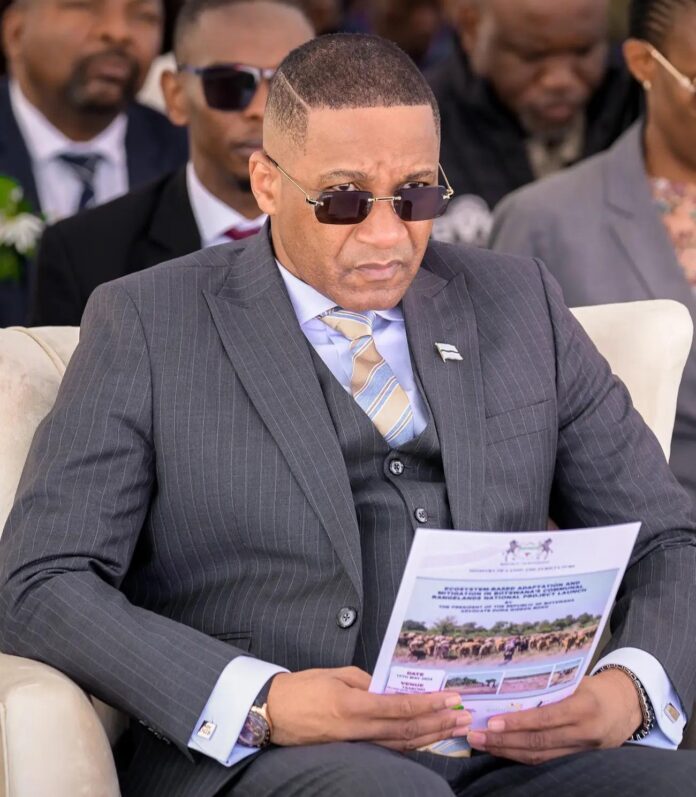Botswana’s ambitious development goals are being suffocated by a public procurement system riddled with delays, corruption, and endless litigation. Despite a robust legal framework, including the Public Procurement Act of 2021, the traditional tendering process is actively hindering the delivery of crucial “mega projects” – from power supply to vital health facilities – costing the nation billions and eroding public trust.
The problem, experts argue, is a “tendering trap” that manifests in a triple threat to progress.
Bureaucratic Bottlenecks & Spiralling Costs: The current system is notoriously slow, with formal tenders stretching to 66 working days before a single shovel hits the ground. This inherent delay is compounded by systemic issues leading to “time and cost overruns, disputes, arbitration, litigation, and even total abandonment of projects.” Studies reveal a disturbing decline in the construction industry’s performance, with projects often “not delivered on time, go over budget, sub-standard quality or are just abandoned.” The emphasis on the “lowest tenderer” often leads to inexperienced contractors, poor planning, and a lack of communication, directly contributing to widespread project failure.
The Shadow of Corruption: While Botswana boasts a strong anti-corruption reputation for petty graft, public tenders are a “very high risk” zone for nepotism and patronage. Companies linked to officials frequently secure lucrative contracts, often without proper disclosure. This suggests that the competitive bidding process, despite its theoretical transparency, is failing to curb sophisticated forms of influence peddling, pushing the executive towards controversial direct appointments. The recent backlash over a Namibian firm securing the 3,000 Bonno Housing Project via direct appointment highlights public anger over capital flight and a perceived sidestepping of local empowerment. The Public Procurement Regulatory Authority (PPRA) itself is struggling with “inadequate procurement management skills” and a shocking 57% compliance rate, further undermining the system’s integrity.
Litigation Labyrinth: Crucial projects are held hostage by “constant litigation.” High-profile cases, like the P1.5 billion water tender dispute halted by a High Court ruling due to “improper” official conduct, exemplify how legal challenges can freeze progress for “months or even years.” This not only delays vital infrastructure but also drains public funds through legal fees, further eroding public confidence in the government’s ability to manage public funds.
Direct Appointment: A Controversial Path to Progress?
Amidst this crisis, a strategic re-evaluation of procurement methods is gaining traction. Proponents argue that judicious direct appointment, particularly for complex and critical projects, offers a pragmatic solution.
“Direct procurement fosters superior project outcomes by allowing for enhanced product or service quality through direct involvement of the purchasing team,” notes one analysis. This approach prioritizes proven capability and track record over mere price, fostering tighter vendor collaboration and enabling customized solutions – a “paradigm shift” from conventional, often adversarial, contracting models. Crucially, direct appointment can “streamline the buying process by eliminating intermediaries and the time-consuming stages of competitive bidding,” directly addressing executive concerns about project delays.
However, the path of direct appointment is fraught with its own risks. Critics rightly point to the potential for abuse and lack of competition. Past and present controversies surrounding direct awards, particularly to foreign companies, underscore the need for stringent safeguards.
To navigate this complex terrain, any shift towards direct appointment must be underpinned by:
Strict Eligibility Criteria: Clear, publicly defined conditions for when direct appointment is permissible, limited to highly specialised services or national emergencies.
Mandatory, Transparent Justification: Every direct appointment must be publicly justified, detailing why competitive bidding was bypassed and how value for money and local content will be ensured.
Enhanced PPRA Oversight: The PPRA needs greater resources, autonomy, and enforcement powers to rigorously scrutinise direct appointments.
Stronger Accountability: Clear and consistently applied penalties for any breaches of direct appointment protocols, including undeclared conflicts of interest.
Botswana stands at a crossroads. The current procurement system is failing to deliver on national aspirations. While competitive bidding holds theoretical merit, the practical realities demand a strategic recalibration. By embracing a carefully managed, quality-focused direct appointment model for critical projects, coupled with unwavering transparency and accountability, Botswana may finally unlock its development potential and deliver essential services without undue delay. The alternative is a continued march towards an infrastructure gridlock.



